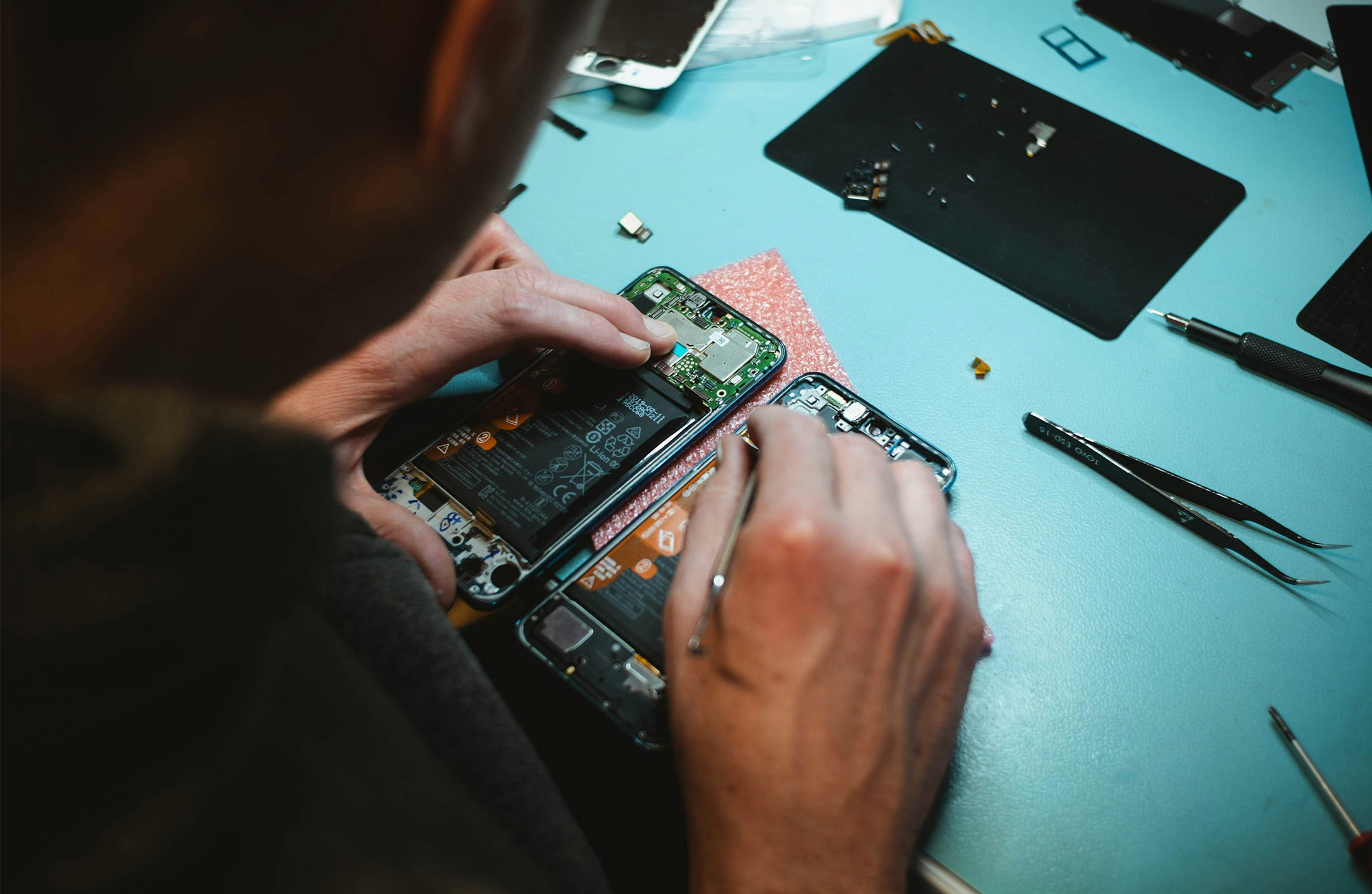Photo by Kilian Seiler on Unsplash
Narrated by Colin Morrison
Sustainability is a bigger issue than climate change, as it includes issues of resource conservation and planetary boundaries as discussed in Kate Raworth’s excellent book Doughnut Economics, which I reviewed in the June 2020 issue of Tumbleweird. Our economic system fails to account for the increasing replacement cost of materials (fresh water, soil, nutrients, minerals) and does not reward durability or repairability of products.
Water rights
In the Tragedy of the Commons, a common resource is ruined and/or depleted because each individual has no compelling incentive to conserve it. Take, for example, the case of fresh water. In many places, the price of water is so low that the use of water is only limited by allocations, with those with “senior water rights” getting their allocation before those with junior rights when supply is low. This division between junior and senior water rights is far from optimal, because those with senior rights have no incentive to conserve when supply is insufficient for junior as well as senior rights.
A far more sustainable and effective water policy would be to price water so that it “accurately reflects the true costs of providing high-quality water and wastewater services to consumers to maintain infrastructure and plan for upcoming repairs, rehabilitation, and replacement of that infrastructure.” That is, for each increment of water, users should pay the cost of replacing the water they use so that others can also have access to water.
Replacement cost is a general economic principle that can be applied to conservation of a wide variety of limited resources. It can be applied to ecosystem evaluation, mineral extraction, and of course water resource management.
Repairability
While recycling has been embraced by many people as a path to sustainability, we now know that many materials cannot be recycled economically. To some, the recycling push has been a distraction promoted by producers of new products.
A far more effective way to conserve resources (and reduce waste) is to avoid disposable products and embrace reusable products. But even reusable products eventually break or wear out. This leads us to the issue of repairability. The useful life of a product can be greatly extended if it can be repaired. But many products are now produced without any consideration of repairability, and in many cases, users are not allowed to repair them. Repair by people authorized by the manufacturers is often very expensive.
Obstruction of repairs of consumer electronics, information technology, appliances, farm machinery, and medical equipment has led to the right to repair movement, which advocates state and federal legislation establishing the right to repair just about anything. Several states have passed ‘right to repair’ legislation, and legislation has been introduced in 30 states. While the legislation does not require products to be made repairable, it does state that if the manufacturer offers a repair service, the repair parts, tools, and manuals must be available to everyone. Right to repair saves consumers time and money, extends the life of products, and reduces waste.
But even if everyone has the right to repair products, many products are so complex (or are built in such a way) that it is extremely difficult to repair them.
I recently had that experience with my Apple Macbook Pro. After three years of use, the keys on the keyboard detached (due to poor design) so, rather than replace my laptop, I asked a Kennewick repair shop (Wintech) to replace the keyboard. Shawn ordered the keyboard, but found it so difficult to install the keyboard (the keyboard had been riveted, rather than screwed, to the frame), that he actually broke it in the process, and spent hours in the process of trying. He had to purchase a second keyboard (at his expense) to get my Macbook back in working order.
Being dedicated to repairing rather than replacing devices, I asked Shawn about computers that are easier to repair. He recommended the website iFixit, which rates the repairability of 49 laptop models and 147 mobile phones. Almost all Apple laptop models since 2015 score very low, while most HP models score very high. If I purchase another laptop, it won’t be an Apple, unless the company changes its ways. Ironically, at a recent White House roundtable on right to repair, Apple called for national right to repair legislation.
What you can do
Do not be discouraged. According to data scientist Hannah Ritchie, the world has made great progress on environmental and social challenges.
Your decisions matter when you purchase and use products.
There are many considerations that go into the purchase of products.
Selecting used products can save you money, as products depreciate most rapidly after their first purchase. I bought my refurbished mobile phone from Walmart for one third the price of a new phone.
You are likely already considering the durability of products, as more durable products can cost less in the long run and require less resources than disposable products.
Consider also their repairability, particularly if you are handy. If not, look around for support for repairs before you make your purchase. A product that is more easily repaired will cost less in the long run, and again will require less resources, but only if you repair it when it breaks. And support the right to repair by advocating for it.
Buying products in bulk will save you money and, if you reuse containers, it avoids the wrapping of packaged products. Winco has a large bulk food section. But resist the urge to purchase more than you can use before the product spoils. If you cannot get the product in bulk, examine the packaging or container to see if it can be recycled. In the Tri-Cities, that means paper, aluminum, steel, glass, or #1 plastic.
And finally, if all else fails and you can no longer extend the life of a product, recycle the material as best you can. Terracycle will recycle almost any kind of plastic, but you must pay for the service.
Circling back to water rights, you can call your water supplier for water pricing that considers replacement cost. If every water user pays for their water at its marginal replacement cost, they would have a much stronger incentive to conserve it. The excess revenue from such high prices could be returned to the people in proportion to the amount of land they own.
Steve Ghan leads the Tri-Cities Chapter of Citizens Climate Lobby.


